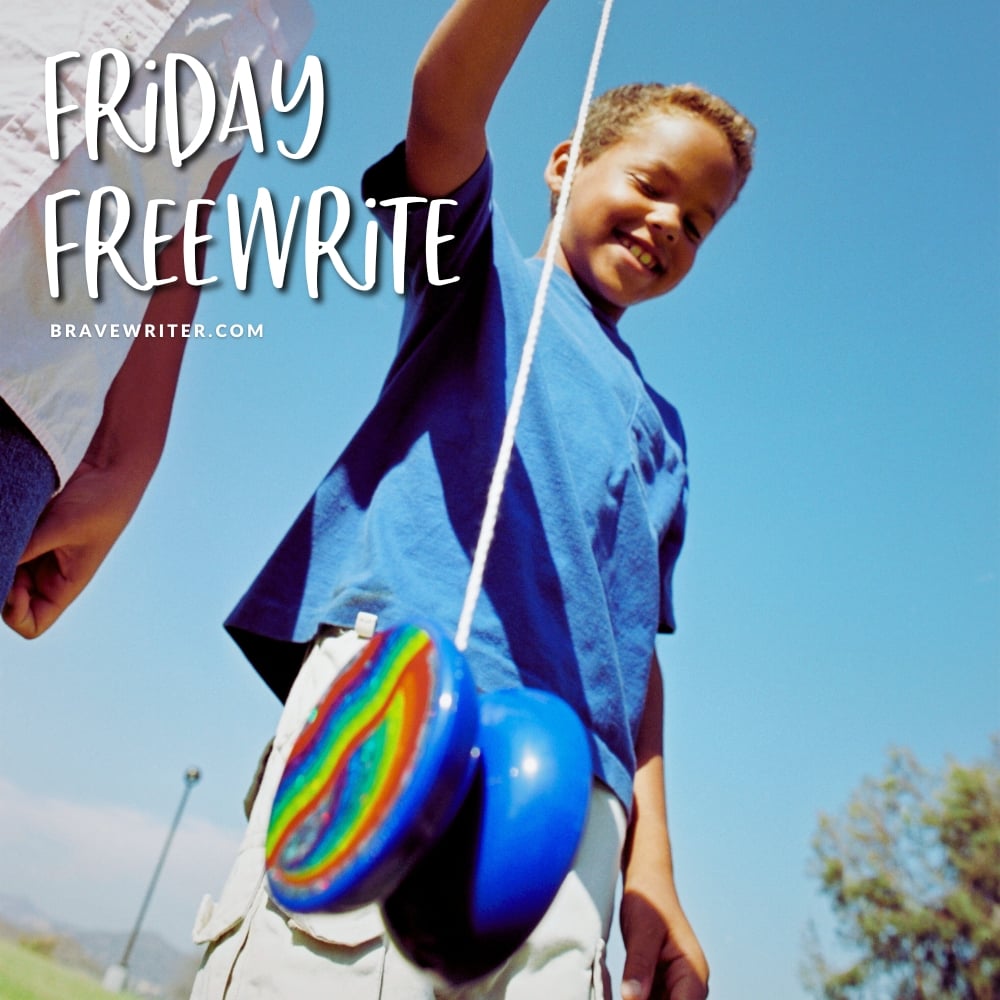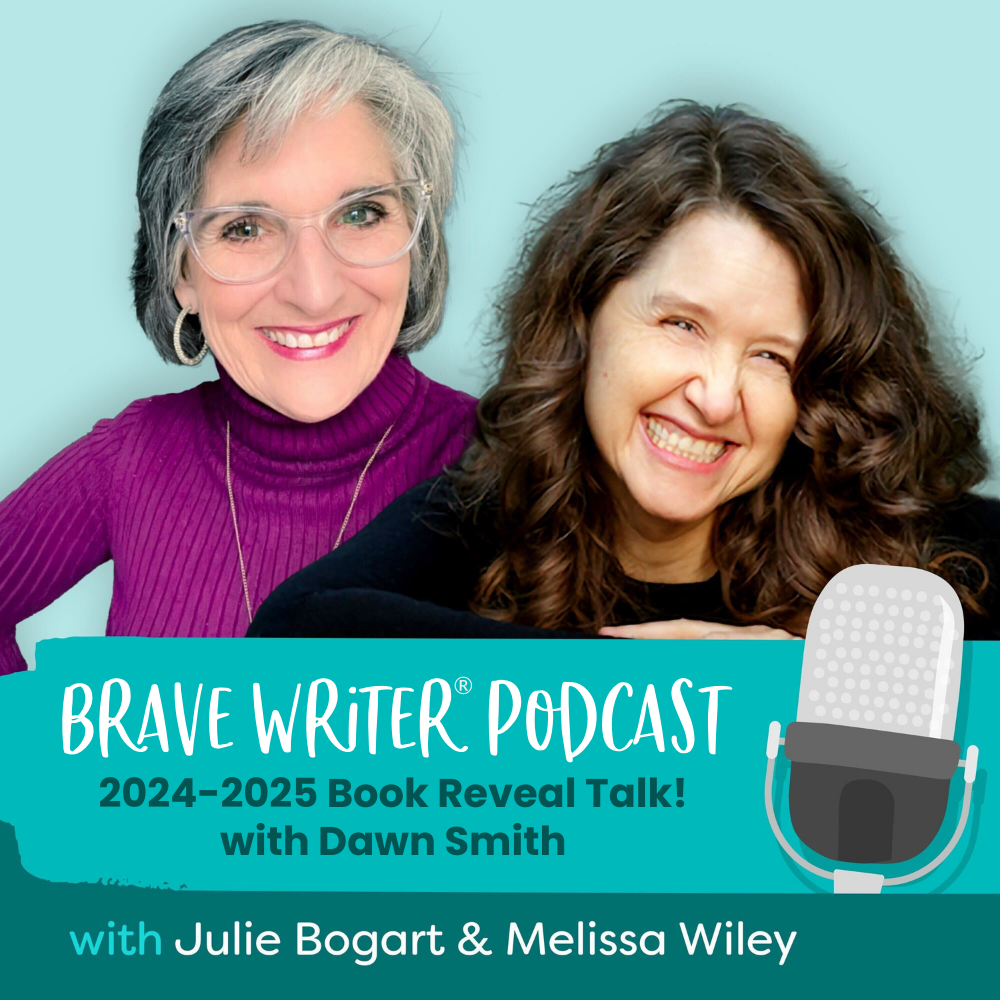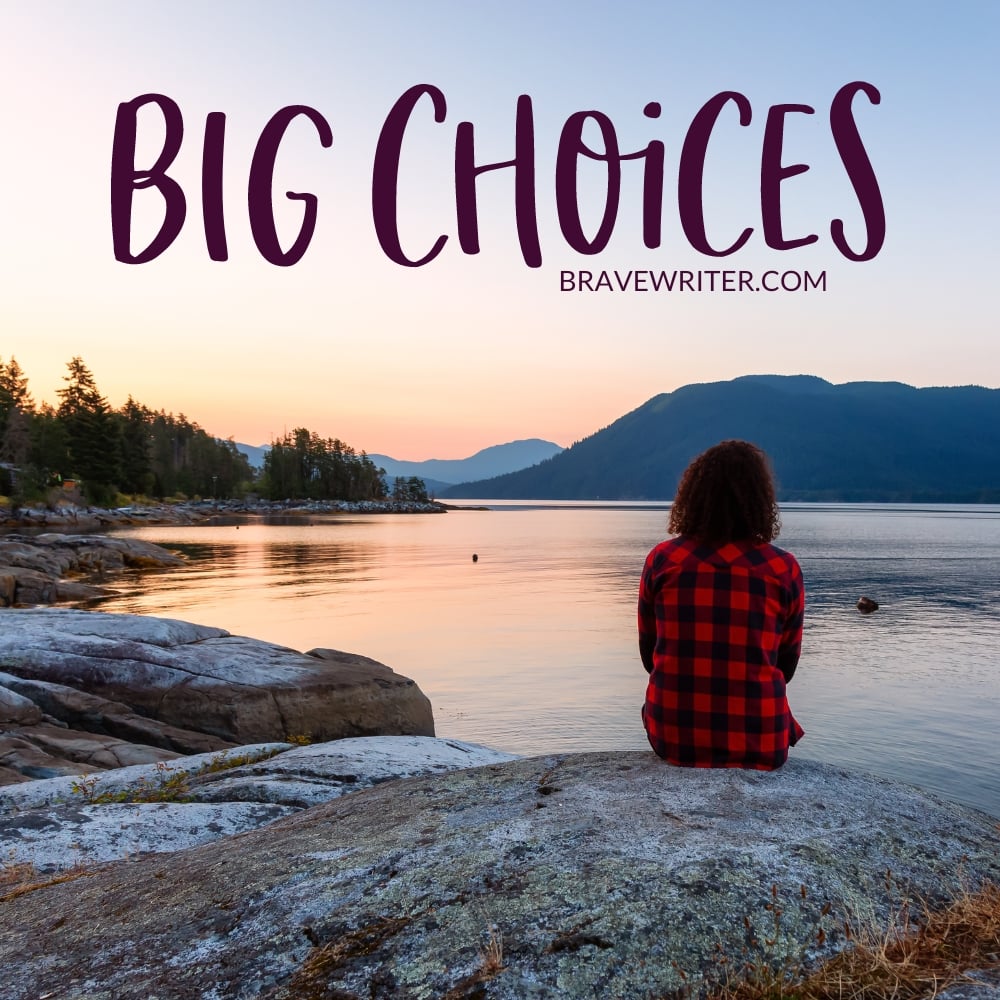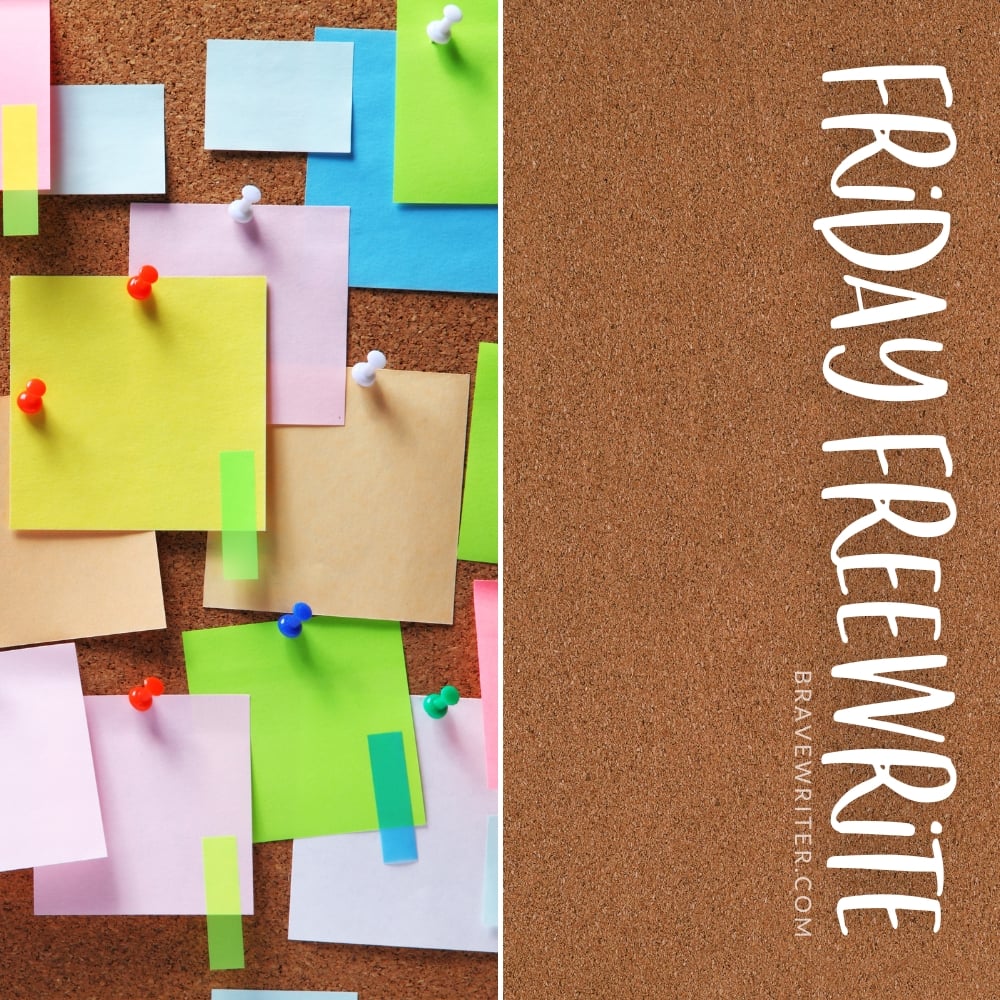
Describe the daily life of a yo-yo…from the perspective of the yo-yo.
New to freewriting? Check out our online guide.

Describe the daily life of a yo-yo…from the perspective of the yo-yo.
New to freewriting? Check out our online guide.
Tags: Writing prompts
Posted in Friday Freewrite | Comments Off on Friday Freewrite: A Day in the Life of a Yo-Yo

Thrilled to add Melissa Wiley to the podcast icon! Having Melissa co-host the show has been such a gift to me and all of you. Plus that cheery smile!
It’s almost time for our annual Book Reveal! Every year we curate a new list of books to be part of our Mechanics & Literature programs.
Dawn Smith spearheads this undertaking and she joins us today on the Brave Writer podcast to describe how she picks which books to be on the list.
The reason the book release is so highly anticipated is because Dawn chooses books that she knows are going to:
Dawn explains the journey she goes on to put together the Dart, Arrow, and Boomerang programs and how she is intentional about centering what is activating, engaging, and flexible.
Plus, stay tuned until the end to learn how to sign up for the book list announcement webinars and the giveaways you may win!
Provoke Kids’ Buy-in
The key to learning is buy-in. Dawn chooses books that kids will genuinely enjoy and be interested in. She doesn’t start with a list of concepts that must be covered. Instead, she picks books that she thinks will interest students, then she makes sure that all the necessary concepts are covered across the entire book collection.
Lead to Big, Juicy Conversations
Dawn chooses books that lead to big, juicy family conversations. The conversations might:
Provide Tools
Tools are more fun and engaging than rules. Teaching the mechanics of reading and writing from a place of rules creates stress and disconnection. Teaching them from a place of tools of expression creates wonder and empowerment. Dawn puts together the Dart, Arrow, and Boomerang programs so literature is a space for creation and experimentation.
The book lists will be announced on May 30 and May 31. Sign-up to join the announcement webinars and you just might win one of the giveaways!
Connect with Julie
Connect with Melissa
Produced by NOVA Media
Posted in Podcasts | Comments Off on [Podcast #237] 2024-2025 Book Reveal Talk! with Dawn Smith

When the way things are is too costly to your well-being than the way things could be if you blew up your life to expand your choices, you’ll change course.
Big choices feel big because they are. They alter how you see yourself.
You deserve to lead a life that gives you hope.
You deserve as good a life as the one you want for your children.
One question that helped me was: “If I were to counsel one of my kids about this issue once they’re an adult, how would I lean?”
One idea that helped me: “You get to keep making choices. This isn’t the last one you’ll ever make.”
Keep going. Rooting for you.
No one changes course until the tipping point. It’s okay if the tipping point hasn’t yet tipped. Be patient. You’ll know when you know. You’ll move in the direction of your hope and release at the right time for you.
This post is originally from Instagram and @juliebogartwriter is my account
so come follow along for more conversations like this one!
Posted in Homeschool Advice | Comments Off on BIG Choices

We see you and all the work you do! So…
👕 Put the laundry on the couch.
📺 Turn on the TV for your little ones.
☕ Pour a cup of tea.
🎁 And open your special gift from us to you!
A Gracious Space: Spring Edition gives you brand new readings for the next leg of your year’s homeschool journey. Daily readings are provided to give you support and encouragement in your homeschool adventure.
Each day’s reading includes a quote from a parent or notable individual, as well as a sustaining thought to take with you through the day.
P.S. Share with a mama friend who needs a little gracious space!
Posted in On Being a Mother | Comments Off on A Mother’s Day Gift for You!

If you had to pick, would you rather have too much to do or not enough to do? Explain your answer.
New to freewriting? Check out our online guide.
Tags: Writing prompts
Posted in Friday Freewrite | Comments Off on Friday Freewrite: Too Much to Do or Not Enough?

I’m a homeschooling alum -17 years, five kids. Now I run Brave Writer, the online writing and language arts program for families. More >>
IMPORTANT: Please read our Privacy Policy.















